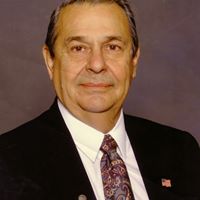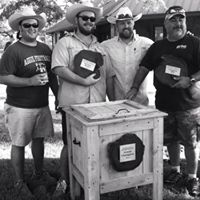John A Grego
age ~78
from Wilburton, OK
- Also known as:
-
- John Etal Grego
- John C Grego
- Johna C Grego
- John Greco
John Grego Phones & Addresses
- Wilburton, OK
- 4671 NE 104Th Rd, Wilburton, OK 74578
Specialities
Buyer's Agent • Listing Agent
Name / Title
Company / Classification
Phones & Addresses
Owner
Grego Steel Fabrication
General Warehouse/Storage Mfg Prefabricated Metal Buildings
General Warehouse/Storage Mfg Prefabricated Metal Buildings
E 16 Lutie Rd, Higgins, OK 74578
9184655472
9184655472
Resumes

John Grego
view source
John Grego
view sourceYoutube
News

Scientists: Last year was hottest ever for Earth
view source- The three hottest years on record 2014, 2010 and 2005 have occurred in the last 10 years. The odds of that happening randomly are 3,341 to 1, according to John Grego of the University of South Carolina. Statisticians Kai Zhu of Stanford University, Robert Lund of Clemson University and David Pet
- Date: Jan 17, 2015
- Source: Google

Heat is on; NOAA, NASA say 2014 warmest year on record
view source- Nine of the 10 hottest years in NOAA global records have occurred since 2000. The odds of this happening at random are about 650 million to 1, according to University of South Carolina statistician John Grego. Two other statisticians confirmed his calculations.
- Date: Jan 16, 2015
- Category: Sci/Tech
- Source: Google

Study: 1 in 25 Death Cases Likely Innocent
view source- Because of various assumptions, it might be best to use the margin of error in the study and say the innocence rate is probably between 2.8 percent and 5.2 percent, said University of South Carolina statistics professor John Grego, who wasn't part of the study.
- Date: Apr 28, 2014
- Category: U.S.
- Source: Google

More US oil drilling doesn't mean lower gas prices
view source- Phil Hanser, an economist and statistician at the energy consulting firm The Brattle Group; University of South Carolina statistics professor John Grego; New York University statistics professor Edward Melnick; and David Peterson, a retired Duke University statistics professor, came to the same co
- Date: Mar 22, 2012
- Category: U.S.
- Source: Google

Analysis: More drilling doesn't lower gasoline prices
view source- first recorded. AP then turned over its analysis to Melnick and three others -- Phil Hanser, an economist and statistician at the energy consulting firm The Brattle Group; University of South Carolina statistics professor John Grego; and David Peterson, a retired Duke University statistics professor.
- Date: Mar 21, 2012
- Source: Google
Googleplus

John Grego
Education:
Texas A&M University - Mechanical Engineering

John Grego

John Grego

John Grego
Flickr

John Grego
view source
John Grego
view source
John Grego
view source
John Grego
view source
John Grego
view source
John Grego
view source
John Grego
view source
John Grego
view sourceMyspace
Classmates

John Grego
view sourceSchools:
Garnet Valley High School Glen Mills PA 1976-1980
Community:
Glen Keiser
Get Report for John A Grego from Wilburton, OK, age ~78














